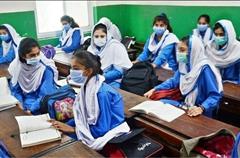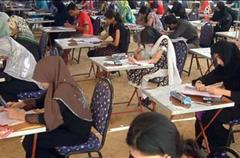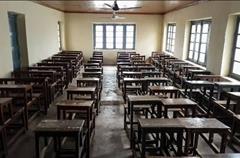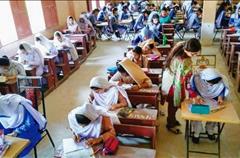The Sindh High Court (SHC) recently held a hearing regarding a petition seeking the release of the Medical and Dental College Admission Test (MDCAT) questionnaire. The case has raised significant concerns about the fairness and transparency of the MDCAT examination process.
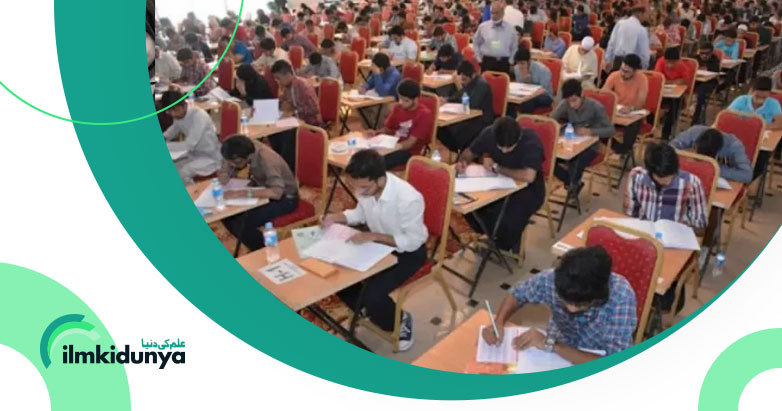
Hearing Highlights
Petitioner's Arguments
The petitioner's lawyer presented the following key points:
-
While MDCAT candidates were provided with their answer sheets, the questionnaire itself was withheld.
-
Without access to the questionnaire, candidates cannot adequately evaluate or challenge the questions.
-
Concerns were raised about:
-
Potential errors in the examination.
-
Questions being outside the prescribed syllabus.
-
-
Irregularities in past MDCAT exams have amplified candidate apprehensions.
-
In other provinces, such as Punjab and Khyber Pakhtunkhwa (KPK), MDCAT candidates received copies of the questionnaire along with their answer sheets.
Legal Precedents
The petition cited an Islamabad High Court order mandating the release of the MDCAT questionnaire. The petition further requested that the final MDCAT results be with held until:
-
The questionnaire is issued.
-
Its accuracy is verified.
Court’s Directions
-
The Sindh High Court directed the Institute of Business Administration (IBA) and other respondents to submit their responses before the next hearing.
-
The hearing has been adjourned to January 20, 2025.
National Assembly Standing Committee’s Role
A meeting of the National Assembly Standing Committee on National Health Services, chaired by Dr. Mahesh Kumar Malani, addressed broader issues related to the MDCAT examination system. The committee discussed various reforms aimed at ensuring a fair and transparent process.
Key Discussions
Exam Standardization
-
Implementation of a single national curriculum to minimize regional disparities.
-
Strengthening the healthcare sector through equitable education standards.
Addressing Candidate Concerns
-
Instances of out-of-syllabus questions in MDCAT exams were highlighted.
-
Issuance of a revised answer key after the removal of certain questions.
Proposed Reforms
-
Biometric Verification: Introducing mandatory juvenile cards to prevent impersonation.
-
Decentralization: Allowing provinces greater autonomy in conducting MDCAT exams.
Additional Discussions
The committee also reviewed legislation related to:
-
Nursing and pharmacy regulations.
-
Other healthcare-related bills.
Some decisions were deferred due to the absence of the relevant movers.
MDCAT Examination Challenges
Candidate Concerns
| Issue | Description |
|---|---|
| Lack of Questionnaire Access | Candidates cannot verify the fairness of the examination. |
| Out-of-Syllabus Questions | Questions outside the prescribed syllabus add confusion. |
| Inconsistencies Across Provinces | Different examination practices in provinces cause disparity. |
Proposed Solutions
| Reform | Expected Outcome |
| Single National Curriculum | Uniformity across all provinces. |
| Biometric Verification | Eliminate impersonation and improve exam integrity. |
| Decentralization of Exams | Increased provincial control and adaptability. |
| Release of Questionnaires | Enhanced transparency and fairness. |
Future Outlook
The Sindh High Court’s direction to IBA and related parties signals a step toward increased accountability in the MDCAT examination process. Coupled with the National Assembly Standing Committee’s reform proposals, there is hope for:
-
Greater transparency in medical entrance exams.
-
Uniform standards across regions.
-
Enhanced confidence among candidates.
Next Steps
The next hearing, scheduled for January 20, 2025, will determine:
-
Whether the MDCAT questionnaire will be released.
-
The subsequent course of action regarding the petition.
Reforms discussed by the National Assembly Standing Committee are expected to shape the future of MDCAT examinations, ensuring a more equitable system for aspiring medical professionals.








.gif)








